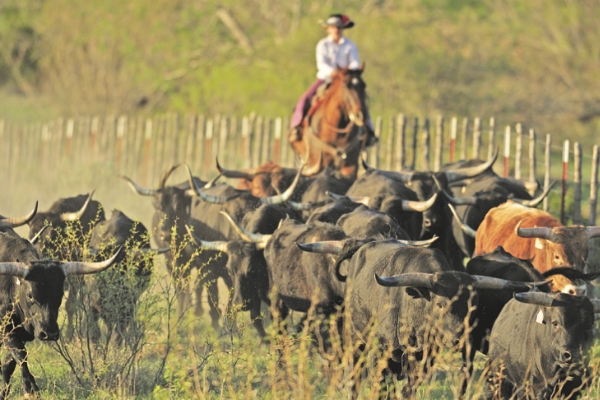Two legislative measures designed to help Oklahoma’s meat producers will likely create more problems than they solve, according to the state’s Cattlemen’s Association.
Senate Bill 761 would authorize the Oklahoma Department of Agriculture, rather than the U.S. Department of Agriculture, to establish standards for Oklahoma producers that market and sell beef, bison, pork or poultry in intrastate commerce.
At the same time, Senate Bill 762 would provide for remote inspections as well as set minimum qualifications for state meat inspectors.
However, Michael Kelsey, executive director of the Oklahoma Cattlemen’s Association, said the federal and state ag departments have inspection processes that are equivalent to one another. That’s important, Kelsey said, because Oklahoma is trying to convince the USDA to allow state inspections to be the only inspections required for interstate commerce of beef.
Currently, federal inspections are needed for interstate commerce of beef.
“Any changes in the state inspection process such as those mentioned in the Senate bills would mean the federal and state inspections are different. What that means is we could not request the USDA give us sole inspection authority because our inspections would not be equivalent to theirs anymore,” Kelsey said.
The COVID-19 pandemic created a problem for beef producers because there were not enough federal inspectors to complete the job.
“It (COVID) prevented the beef from getting inspected and provided some challenges,” Kelsey said. “The beef supply was interrupted and that caused problems for producers.”
Kelsey said the OCA will likely oppose both Senate bills proposed by Sen. David Bullard (R-Durant). Kelsey said he’s sure Bullard’s proposals are well-meaning, but the long-term consequences would be more harmful than helpful.
“I appreciate Senator Bullard taking a look at how we can improve the beef industry in Oklahoma. However, the big question with this bill is how it separates our inspections from the USDA,” the OCA executive director said. “As currently written, we would oppose this bill.”
Kelsey said he did not speak with Bullard before the measure was filed in January. The measure was referred to the Senate Agriculture and Wildlife Committee.
Scott Yates, director of food safety for the Oklahoma Department of Agriculture, agreed with Kelsey’s assessment of the equivalent inspections. “The problem is if we change the state inspection at all, it’s no longer equivalent to the federal inspection,” he said.
However, Bullard said he “categorically disagrees” with Kelsey. “We’re not trying to do alter anything,” the senator said. “All we’re doing is strengthening state inspections. I think it’s a difference in vocabulary.”
Bullard said he doesn’t believe the USDA will “ever let go” of beef inspections for interstate commerce. In a prepared statement Bullard stated that his bills would improve and expand the inspection process.
He contends SB 762 would clarify that inspection standards set by the U.S. and Oklahoma Departments of Agriculture and should include use of high-quality technologies to allow for clear and sufficient remote inspections as well as set minimum qualifications for meat inspectors. The bill also would authorize the agencies to create rules allowing for the intrastate processing of pork and chicken, along with the currently allowed beef and bison.
“Without our Oklahoma farmers and ranchers, we would not have the quality of life we enjoy or the food on our tables. If you like a good ribeye as much as me, go thank a local rancher by buying and supporting them directly,” Bullard said.


